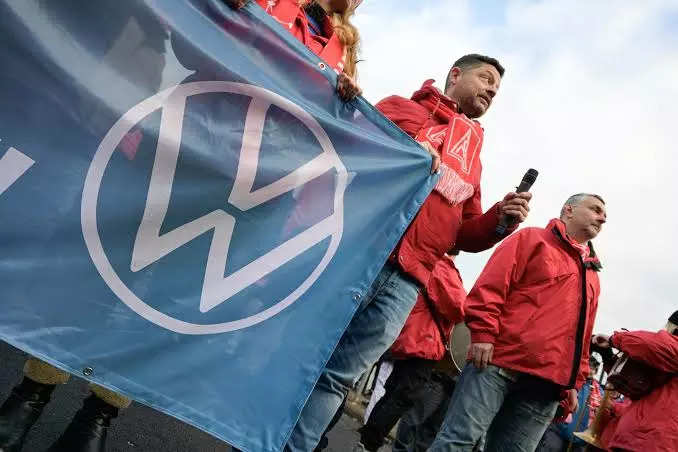 Although the deal includes a pay freeze for 2025 and 2026, as well as deferred bonuses, it safeguards the workforce from immediate layoffs.
Although the deal includes a pay freeze for 2025 and 2026, as well as deferred bonuses, it safeguards the workforce from immediate layoffs.Volkswagen AG, Germany’s automotive giant, has announced plans to slash 35,000 jobs in its home market by 2030 as part of a sweeping cost-cutting initiative. The move follows wage negotiations with the IG Metall union, which concluded in Hanover on December 20, 2024. The agreement is expected to save Volkswagen approximately EUR 4 billion annually but will result in significant changes to production and employment across the company’s 10 German plants.
The IG Metall union hailed the agreement as a victory for workers, emphasising that it prevents forced redundancies and plant closures. “There will be no plant closures,” said union negotiator Thorsten Groeger, marking a relief for employees after weeks of rolling strikes.
Volkswagen, however, will scale back operations at several facilities. The Dresden factory, employing 300 workers, will cease vehicle production by the end of 2025, while the Osnabrueck plant, with 2,300 workers, will halt production by mid-2027. Wolfsburg, the company’s headquarters, will see job losses of 4,000 as production lines are halved, with Golf production moving to Mexico. In Zwickau, a key site for electric vehicles, production lines will also be reduced.
CEO Thomas Schaefer highlighted the urgency of reducing excess capacity, labour costs, and development expenditures to maintain competitiveness amid rising challenges in transitioning to electric vehicles and increasing pressure from Chinese automakers like BYD and Geely.
Although the deal includes a pay freeze for 2025 and 2026, as well as deferred bonuses, it safeguards the workforce from immediate layoffs. Industry experts note, however, that Volkswagen’s downsizing reflects a broader decline in Germany’s automotive sector.
The announcement underscores both Volkswagen’s struggles and Germany’s broader economic challenges as the nation grapples with high energy costs and consecutive years of contraction.




























































